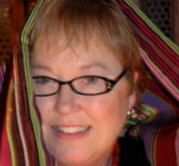International CU development: Culture lessons from an African frog

Assignments to remote African credit unions present interesting lodging arrangements. There are no hotels in places like Senegal’s Ndiaw Ndiaw Village, a six-hour drive from Dakar, into the Sahel Desert. At Ndiaw Ndiaw, I was privileged to experience a traditional home stay in the credit union Board Chair’s family compound. I presumed I would be housed in his wives’ quarters. Not so — I slept with their husband.
Wait, let me clarify!
The social hierarchy in Ndiaw Ndiaw meant as the honored guest I was given the Chairman’s bedroom, across the courtyard from his wives’ quarters. Meanwhile, the Chairman slept in the anteroom just outside an arched entry to his bedroom. His quarters, built from mud-bricks and his wooden four-poster bed would be my lodging for the next four weeks. In a shadowy corner stood a small metal safe that housed cash from member savings. A curtained opening on the back wall led to the toilet facility, while on the opposite wall, an empty curtained window over-looked the family courtyard. His wives’ mud-baked dwellings encircled the courtyard, the social center of family activity.
This was my first experience in Africa and I was apprehensive about the arrangement, wondering how his wives would respond. Who am I to question their social norms? I asked the translator to accompany me to the women’s living area to offer my respects. The wives spoke only Wolof so the interpreter translated my French, as the women prepared the evening meal. We all had a good laugh when they balanced a bucket of water on my head and I sloshed the precious contents everywhere. Women walk miles daily to carry fresh water from the river to the village, since the village well was dry. They all clapped and trilled as a thank you for my visit so my uneasiness was pacified.
The translator explained that when a Muslim man has a polygamous marriage, he may have up to four wives in accordance with the Koran, providing he treats each wife with absolute equality. For example, if a husband buys gold threaded fabric for one wife, he must buy fabric of equal quality for each spouse. The Chairman’s four wives and 19 children were well cared for. The family compound comprised dwellings of equal proportion for each wife.
I woke each morning to at least four sets of inquisitive eyes peering through the empty bedroom window, curious about how a white woman behaves. From my first morning stirring until I closed my eyes at night, I was watched and followed. Children competed to hold my hand. Fingers softly stroked my arm or tickled their way to experience the texture of my hair. Touch gratifies children’s youthful curiosity.
Learning cultural norms is important to appropriate credit union development in Africa. These teachings often come through embarrassing mistakes and my lessons were no exception. One example of village culture is that food is the language of hospitality. Every Ndiaw Ndiaw credit union family I visited welcomed me with tasty pea fritters, roasted fresh peanuts or often a full meal.
The first painful lesson came after sharing a family-style dinner with six of us seated on the floor around a common bowl. Thieboudienne is boldly flavored rice with vegetables. In the middle of mounded rice sat two carrots, cassava, bits of cabbage, eggplant and a prized grilled chicken. Hands artfully scooped rice and sauce, forming bite-size pieces. I marveled at how clean their hands were after deftly flicking the sauce-laden rice balls into their mouths. My hand was awash with sauce and errant grains, while theirs were spotless after each bite. They kindly avoided watching my cat-like tongue as I surreptitiously licked my fingers clean.
By tradition, throughout the meal the eldest woman broke up vegetables and chicken and distributed food in front of each person’s location at the bowl. She served me generous portions. I ate the spicy offering with gusto and enjoyed the laughter and lilting Wolof chatter I didn’t understand. Sitting on the ground, legs lady-like to the side, was uncomfortable for me and took practice too. I often leaned on my right hand to steady myself as I scooped food in my left hand while trying to emulate their tidy bites. Often, I found more rice and sauce in my lap than in my mouth.
Several days after my first communal bowl meal experience, I grilled my translator about local customs. I was horrified to discover a valued chicken was slaughtered in my honor for our meal. From then on, I let it be known I was vegetarian. I did not want to eat the rare protein a family might have to last for a week.
My second lesson causes my face to flush with embarrassment even today. Eating with the left hand is taboo. One eats only with the right hand because the left is used in lieu of toilet paper. They had graciously ignored my gaffe to save me discomfort.
I enjoyed bed time as it was the only privacy I had. I am blessed with immediate sleep and cursed with colossal snoring like a drunken sailor. The children found my snorts particularly amusing. Their imitations of me sent the children into raucous laughter and I played along imitating myself. There were no portable sleep apnea machines that didn’t require electricity. I’m sure the chairman hardly slept the entire time I lived in his quarters. He never uttered a single complaint.
One night I did a deep dive into blissful sleep and several hours later woke with a start, my heart pounding. I felt thump-thump-thumping from beneath my bed. What animal braved an open doorway to discover if a nasal roar is edible? I lay still and held my breath. A snake? A lizard? Perhaps a curious monkey? I was afraid to exit the bed with no shoes nearby.
I possess a fatal flaw when afraid; I suffer an unbearable urge to move towards the danger to relieve my apprehension. Fearing the worst – a snake – I gradually rolled onto my stomach and lowered my head cautiously to peer under the bed. And there it was.
Revealed in the moonlight radiating through the back doorway, I saw a frog trapped under the bed. Up and down he jumped, colliding his head with the underside of the bed in a repeatedly fruitless attempt to escape. My relief was immense. I tiptoed out the door to the loo — okay it’s just a hole in the ground filled with maggots and pungent smells. There, I could watch, hoping the poor creature would learn to hop less and creep more to escape his predicament.
Ten minutes later I sighed with satisfaction as the frog realized smaller jumps advanced him forward without bruising his head. In a grand finale, he leapt his way to freedom out the door.
Sometimes moving forward means taking smaller steps and learning lessons from the bruises of our mistakes.
QUESTIONS TO CONSIDER:
What cultural norms exist in your credit union and how do they impact team culture?
How do you mentor employees to understand un-spoken and un-written social norms at your CU?
How might your organization’s cultural norms impact employee morale?





